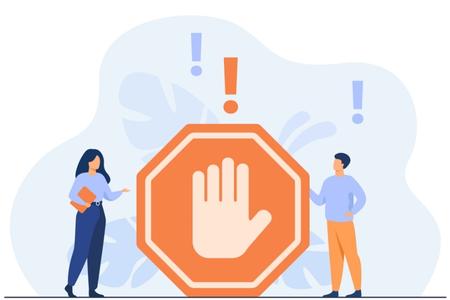
Our podcast is taking a bit of a hiatus over the next few months, which leads us to the question: if you could tell your audience the MAIN things they needed to see for success, what would you say?
For us, that conversation resulted in 4 main points — the fantastic four of marketing, as it were. So what are they? Why do they matter to small businesses? And why, with ALL the things we could talk about, did these 4 make the list? We’re glad you asked.
 1. Know your audience
1. Know your audience
If you’ve been on our blog or listened to our podcast, you’ll know that this is a CENTRAL message in everything we do. Marketing is, at its core, communicating with other people. Doing that well means knowing who your audience is, how they like to be spoken to, and what they want to hear from you and your business.
Do you know who your audience is? Or, put another way, who your ideal customer is? If not, spend some time delving into who currently buys your product, what they like, and where they get their information. If you need a little help with this, check out our tips and tricks at the blog here.
Note: If you HAVE done a deep dive on your target audience before, how long has it been since that was completed? Audiences change because people change; who you were speaking to a month ago or a year ago may not be the same person you’re speaking to now.
2. Have a strong website and web presence
Would you go into a shop with broken windows, outdated decor, peeling paint, and broken linoleum flooring? The answer: probably not. If you did it would be for a very specific reason and you probably wouldn’t love the overall experience. Sure, the shop may appeal to its regulars…but does it really appeal to new customers?
Your website is your shop online. In the digital world, it’s your brick and mortar, your “home,” your base of operations. Your customer will see your website (trust us, it’s only a matter of time before they Google you). Do you want their first impression to be that of an outdated, old website that no longer reflects your brand? No.
Having a strategic website that is geared towards your customer, visually updated, and secure is CRITICAL to the success of your operation and the success of any other marketing efforts. Your website is a 24/7 salesperson and a testament to your company’s services, products, and customer care. Ensuring that it is up to snuff is the foundation for success in other marketing avenues. You don’t want to be the person that doesn’t want to pay for flyers, or digital ads, or other marketing efforts because you’re embarrassed by what your website looks like. Investing on your website first can save you money, pain, and heartache later.
3. Track your return on investment
It’s easy to hear this and think of overwhelming analytics, books and books of data, and numbers that make no sense…but that doesn’t have to be the case. Tracking your return on investment (ROI) can start as simply as asking potential clients how they heard about you and writing it down on a steno notepad. After a month or two of even this simple change, you’ll have a better idea of what’s working and bringing people in the door.
Once you’ve mastered a few basic data points, consider slowly leveling up your ability to collect useful data and track your marketing ROI. Many software systems, like customer relationship management (CRM) software or Google Analytics, have metrics built in that can help you make informed decisions for your organization.
Data doesn’t have to be scary–the key is collecting the data you need to be informed without being overwhelmed.
We’ve written a few things on marketing metrics. If you’re interested in learning a little more about marketing metrics including what may, or may not, be worth your time check out:
The 3 Marketing Metrics You Should be Tracking
Making Marketing Metrics Matter
Bonus blog! How to Allocate Traditional and Digital Marketing Budgets — Your metrics should always inform your budgeting and vice versa.
4. Know your limitations 
Knowing your personal and organizational limitations is hard, but important. In modern marketing, it is wiser to do several things very well than many things somewhat well. More and more research shows that audiences care about quality over quantity. Knowing what you can and can’t do helps you enter each conversation at the right time for maximum impact. Perhaps you can’t be on every social media platform — but you can be on one of them. Do that as well as you can and, when you’re ready, consider expansion.
Knowing your limits also means knowing when it makes sense to hire an outside group to help. It’s not possible to be an expert at everything — although we know small business owners are often experts at MANY things. Knowing when it’s time to work with another group can save you stress in the long run. Hiring an expert in their field to help you where you need it can often be the best investment of your money.
These fantastic 4 are the tenets for marketing success. Like most things in life, they might take a bit of time, hard work, and training…but in the end, they’re worth it to see your business grow or hold steady in today’s market.



